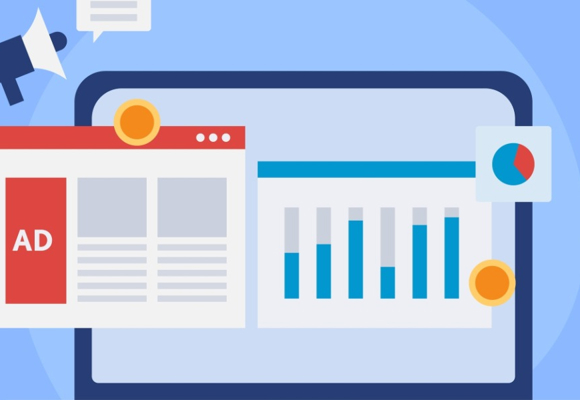November 17, 2023
The Importance of Customer Engagement
Customer engagement is the cornerstone of any successful business. Truly engaging customers is about fostering a meaningful connection with your audience, one that goes beyond transactional interactions. Engaged customers tend to be more loyal but can even begin spreading the word about your products or services. Building this strong connection is a continuous process that requires investment over time. To truly engage a customer in a personalized experience, you’ll also need to understand your customers on a deeper level.
The Impact of Personalization on Customer Engagement
How does personalization engage customers? Imagine visiting a website and seeing your preferred products front and center, tailored to your search history. When you personalize those interactions, you demonstrate that you understand your customers as individuals. It's like having a conversation with each customer on a personal level rather than shouting a generic message to a faceless crowd. This can make customers feel special and appreciated, strengthening their connection with your brand.
Tailoring Content and Recommendations
One of the primary ways to harness the power of personalized marketing is by tailoring your content and recommendations. This means providing your customers with product suggestions, content, and offers that match their interests and previous online behaviors. An online clothing store may recommend outfits based on a customer's past purchases or browsing history. This level of personalization makes the customer feel seen, increasing the likelihood of a purchase.
Enhancing User Experience
User experience plays a pivotal role in customer engagement. The more seamless and enjoyable the experience, the more likely customers are to buy from your brand. Personalization can enhance the user experience by making it more convenient and relevant. As mentioned, e-commerce websites can save customers time by displaying items they've previously shown interest in, eliminating the need to search for them again. This is just one part of user experience and design that can encourage a customer to make a purchase.
Data Collection and Privacy
To personalize effectively, you need data. You’ll need data about your customers' preferences, behaviors, and demographics. All of this information is a fundamental part of personalizing their experience! This is where data collection comes into play.
The more you know about your customers, the better you can personalize their experience. However, respecting customer privacy has to remain a priority throughout this process. To collect data ethically, you should be transparent with your customers about what data you collect and how you use it. Make it easy for customers to opt out if they wish.
Data privacy regulations, such as GDPR in Europe and CCPA in California, have placed strict requirements on how companies handle customer data. Adhering to these regulations builds trust with your audience (while also being a legal requirement).
Challenges and Considerations
Despite its effectiveness, personalized marketing is not without its challenges. For smaller businesses, implementing a complex personalized marketing strategy can be resource-intensive. It requires the right tools and expertise to collect, analyze, and utilize customer data. To keep up with changing customer demands, you’ll need to put in a consistent effort. Sometimes hiring outside marketing professionals to help with these efforts can be a game-changer.
That’s because personalization can sometimes backfire if not done right. Sending overly personal messages or recommendations that seem intrusive can alienate customers. Of course, you’ll also need to keep their privacy in mind. Striking the right balance is a challenge. And as data privacy concerns continue to grow, finding ways to personalize while respecting customer boundaries is an ongoing journey.

Given these challenges, what's in store for the future of personalized marketing? Personalization will undoubtedly remain a major pillar in digital marketing efforts. Let’s explore a few trends worth noting.
-
Artificial Intelligence (AI): AI will continue to play a significant role in personalization. It can analyze vast amounts of data and provide insights that help tailor marketing efforts to individual preferences. In fact, AI continues to make personalization easier and more accessible for businesses of all sizes. In terms of advertisement and user experience, advanced AI technology is helping digital marketers drastically optimize their processes.
-
Predictive Analytics: Predictive analytics will become even more refined, allowing businesses to anticipate customer needs and preferences with greater accuracy. These analytics are often assisted with the use of AI.
-
Omnichannel Personalization: The personalization of the future will extend across various channels, from websites and emails to social media and even physical stores, providing a consistent and seamless experience. Businesses are starting to get creative with how they can connect the personalized online experience with customers’ real lives and in-store visits.
-
Customer-Initiated Personalization: Customers will have more control over the personalization of their experiences, deciding what information they share and how it's used. Because of an increased focus on privacy and customers’ rights, companies will likely move towards a model that allows individuals to pick and choose what they share with businesses.
Personalized marketing continues to evolve as a powerful tool in the world of digital marketing. Further enabled with AI tools, personalization is truly a fundamental pillar of any business’s online marketing strategy. We've seen how it enables businesses to forge stronger connections with their customers, fostering loyalty and trust.
Moving forward, businesses must balance the benefits of personalization with the need to protect customer privacy. As artificial intelligence and machine learning promises to take personalized marketing to new heights, we’ll need to stay vigilant about privacy concerns. Even still, thanks to the advancements in this technology, personalized marketing will remain a cornerstone of successful businesses in the years to come.
Connect with Your Customers!
Let's talk about personalized marketing and how you can use it to connect with your customers.


